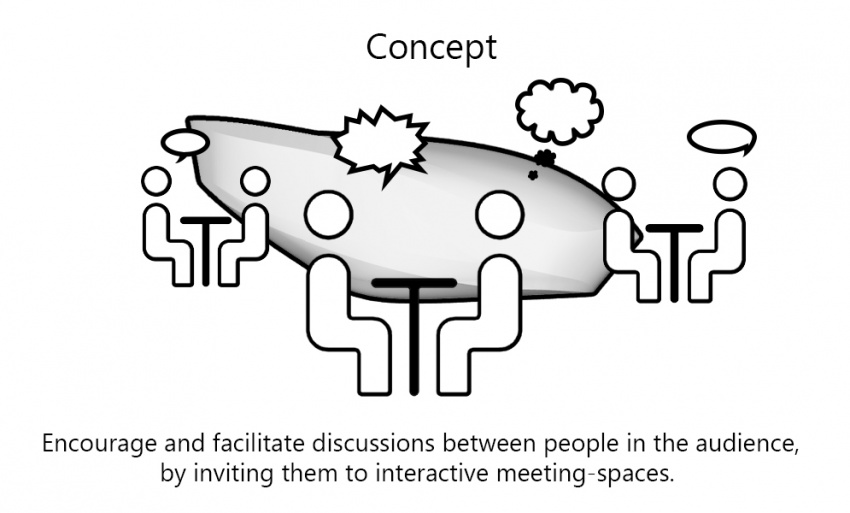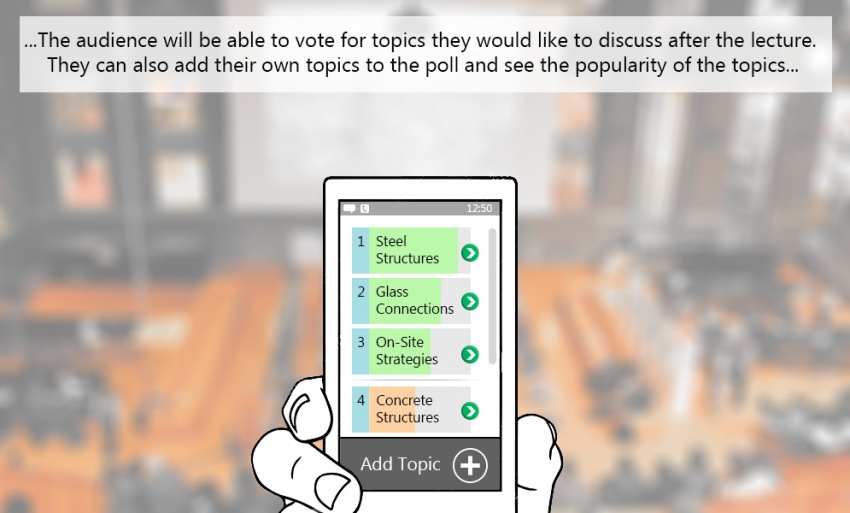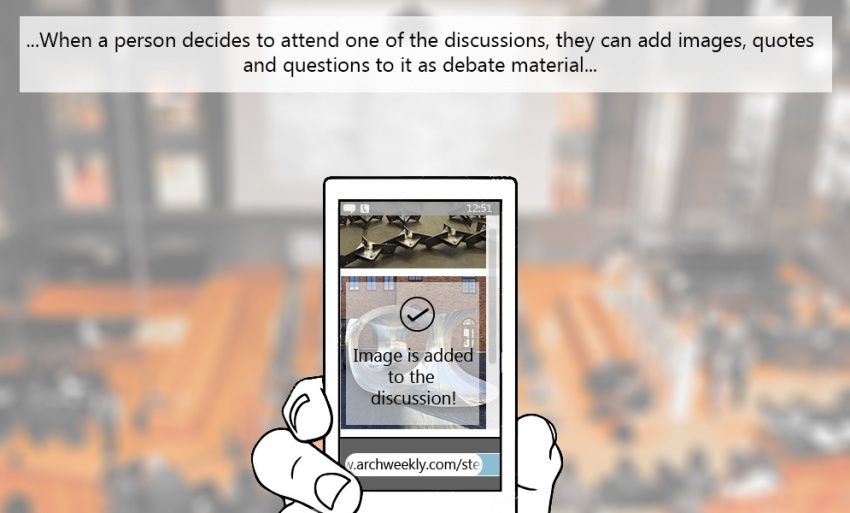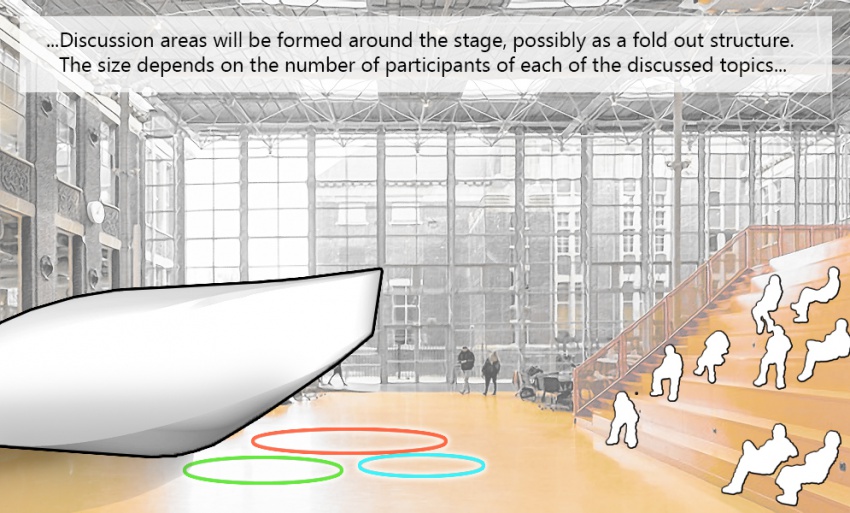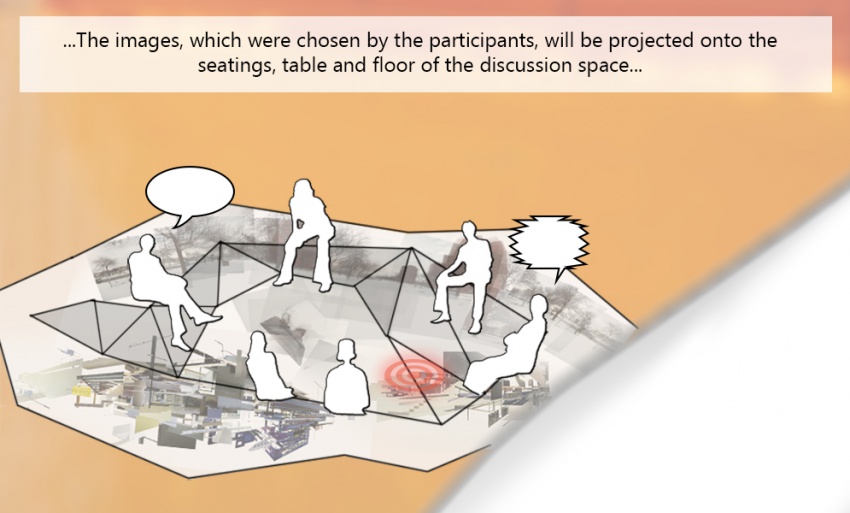Difference between revisions of "Msc2G2:Group"
| Line 25: | Line 25: | ||
The idea about a symposium, lecture or debate is the EXCHANGE of KNOWLEDGE. An interactive stage should support the exchange of knowledge maximally. | The idea about a symposium, lecture or debate is the EXCHANGE of KNOWLEDGE. An interactive stage should support the exchange of knowledge maximally. | ||
| − | Scenario 1 – the lecture | + | Scenario 1 – the lecture |
| − | Scenario 2 – the debate (lecturers) | + | Scenario 2 – the debate (lecturers) |
| − | Scenario 3 – the group discussions (audience) | + | Scenario 3 – the group discussions (audience) |
| − | Scenario 4 – “free-standing” | + | Scenario 4 – “free-standing” |
1- The lecture | 1- The lecture | ||
| − | a) BIG audience => more seating should be provided = in addition to the seating which is already provided by the room, seats could “pop up” from the stage and face the stage | + | a) BIG audience => more seating should be provided = in addition to the seating which is already provided |
| + | by the room, seats could “pop up” from the stage and face the stage | ||
| − | b) small audience1 => whole audience can be hosted by the stage’s seats (= 1a) | + | b) small audience1 => whole audience can be hosted by the stage’s seats (= 1a) |
| − | c) lecture happening outside Orange Hall => stage could function as an independent, self-sufficient unit | + | c) lecture happening outside Orange Hall => stage could function as an independent, self-sufficient unit |
| + | provide its own seating (only a certain amount of seats will be possible) | ||
NOTE: if people are sitting on the stages chairs during the lecture, how do we reconfigure them to a debate area? | NOTE: if people are sitting on the stages chairs during the lecture, how do we reconfigure them to a debate area? | ||
| Line 45: | Line 47: | ||
2- the debate (lecturers) | 2- the debate (lecturers) | ||
| − | a) seats are hosting the debating presenters, audience is listening | + | a) seats are hosting the debating presenters, audience is listening |
| − | needs: | + | needs: |
| − | • (flexible in number)2 + ideally provided by the stage | + | • (flexible in number)2 + ideally provided by the stage |
3- the group discussions (audience) | 3- the group discussions (audience) | ||
| − | seating to enhance the debating about topics of the lecture or interests | + | seating to enhance the debating about topics of the lecture or interests |
| − | needs: | + | needs: |
| − | i. flexible in number2/adjustable for smaller and bigger groups | + | i. flexible in number2/adjustable for smaller and bigger groups |
| − | ii. moveable | + | ii. moveable |
| − | iii. inviting the people to the stage/engage 3 | + | iii. inviting the people to the stage/engage 3 |
4- “free-standing” | 4- “free-standing” | ||
| − | a) Invite people to interact with the object | + | a) Invite people to interact with the object |
If individual chairs maybe it has to be made sure that everybody puts it back in before the “leaf” folds in again? (not necessarily) | If individual chairs maybe it has to be made sure that everybody puts it back in before the “leaf” folds in again? (not necessarily) | ||
Revision as of 13:31, 31 March 2016
GROUP II
Group 2 members: Alastair Fraser, Dominik Philipp Bernátek, Haris Grivokostopoulos, Nick van Dorp
Week 1
Week 2
What is a symposium about? The idea about a symposium, lecture or debate is the EXCHANGE of KNOWLEDGE. An interactive stage should support the exchange of knowledge maximally.
Scenario 1 – the lecture
Scenario 2 – the debate (lecturers)
Scenario 3 – the group discussions (audience)
Scenario 4 – “free-standing”
1- The lecture
a) BIG audience => more seating should be provided = in addition to the seating which is already provided
by the room, seats could “pop up” from the stage and face the stage
b) small audience1 => whole audience can be hosted by the stage’s seats (= 1a)
c) lecture happening outside Orange Hall => stage could function as an independent, self-sufficient unit
provide its own seating (only a certain amount of seats will be possible)
NOTE: if people are sitting on the stages chairs during the lecture, how do we reconfigure them to a debate area?
2- the debate (lecturers)
a) seats are hosting the debating presenters, audience is listening
needs:
• (flexible in number)2 + ideally provided by the stage
3- the group discussions (audience)
seating to enhance the debating about topics of the lecture or interests
needs:
i. flexible in number2/adjustable for smaller and bigger groups
ii. moveable
iii. inviting the people to the stage/engage 3
4- “free-standing”
a) Invite people to interact with the object
If individual chairs maybe it has to be made sure that everybody puts it back in before the “leaf” folds in again? (not necessarily)
1 small audience def.: such an amount of people that is smaller than / equals the amount of seating that can be provided by the stage
2 individual seats create a more formal atmosphere, if the presenters are given “couches” the atmosphere gets more relaxed (better for the presenters and the audience to listen to)
3 in this scenario the stage could fully transform, since there is no need for a podium or stage
To reduce the cantilever, the “leaf” has to expand:
Unfolding - origami
Unrolling – fern / pneumatics
